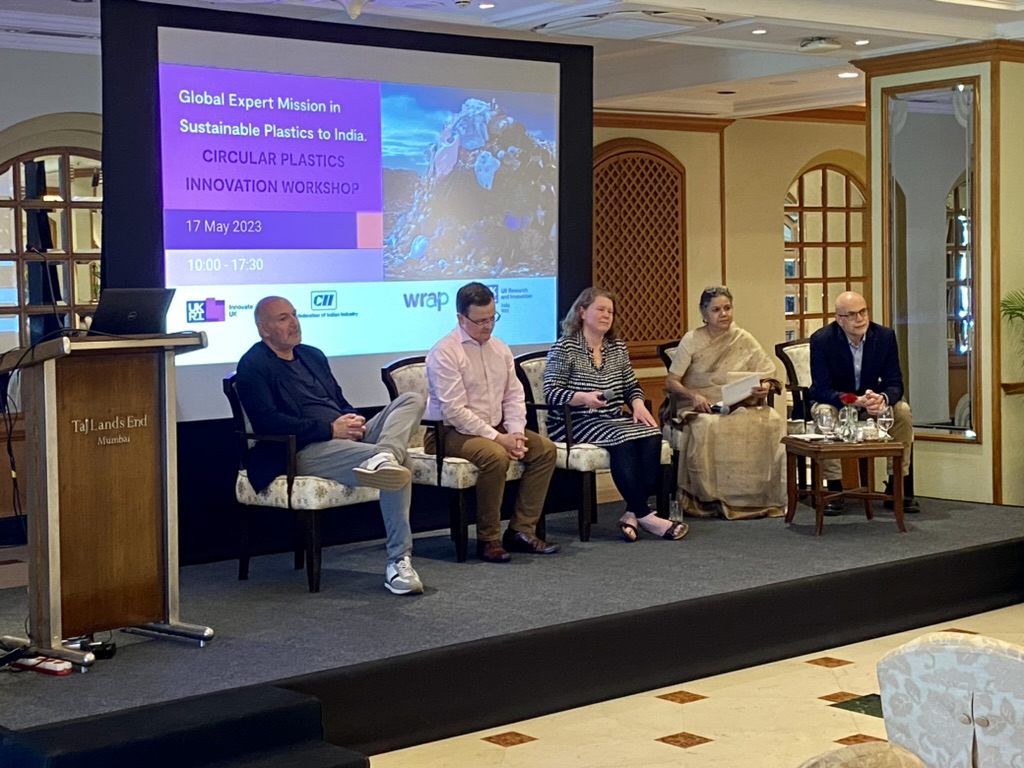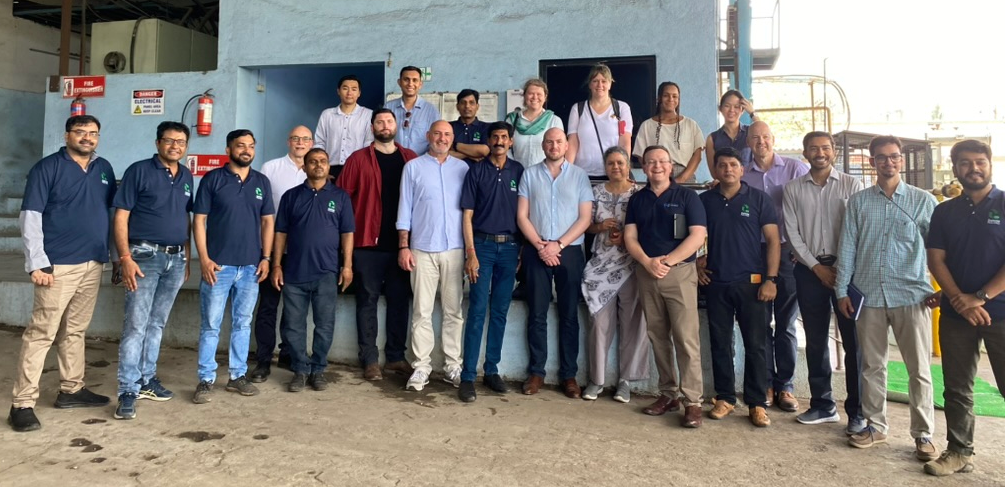India's plastic recycling market and innovation landscape
Background
India is one of the world’s largest consumers of plastic, with consumption estimated at over 16 million tons annually. However, inadequate waste management systems lead to approximately 26,000 tons of plastic waste being generated daily, of which only a fraction is recycled. Much of this plastic waste ends up in landfills, water bodies, and oceans, causing severe environmental degradation and health hazards.
Recognising the urgency of addressing plastic pollution, the Indian government has implemented several initiatives to promote sustainable plastic recycling.
The Government of India established the Waste to Wealth Mission in 2021 to leverage science, technology, and innovation to create circular economy models that are financially viable and sustainable for waste management to streamline waste handling in the country. Amendments to the Plastic Waste Management Rules in 2022 indicate the Indian government’s ambition to tackle plastic waste and move towards a more circular economy for plastics. These regulatory changes have set clear targets to drive up the use of recycled content in packaging and eliminate single-use plastic packaging. Amendments to the Extended Producer Responsibility (EPR) guidelines will drive market demand for good quality recyclate and collected recyclables.
Market overview: India’s plastic recycling landscape
The market for recycling waste plastic in India reached 9.9 million tons in 2023. It is projected that by 2032, this figure could rise significantly to 23.7 million tons. The increased consumption of plastic in India is attributed to population growth, urbanisation, and industrialisation. The country generates a significant amount of plastic waste, estimated to be around 26,000 tons per day. Despite this high volume of plastic waste, India’s recycling infrastructure remains limited, leading to improper disposal of plastic waste and environmental pollution.
The informal sector, including small-scale recyclers and waste pickers, plays a vital role in plastic recycling. However, this sector lacks proper regulation and infrastructure, leading to environmental and health risks for workers.
The Indian government has implemented various initiatives to address plastic pollution and promote recycling. Consumers are also becoming more aware of eco-friendly alternatives, leading to the adoption of sustainable packaging and the demand for recycled plastic.
India has engaged in collaborations with international organisations and governments to leverage expertise and resources for sustainable plastic recycling. In 2021, India has become the first Asian country to launch a Plastics Pact5. Targets include making 100% of plastic packaging reusable or recyclable and effectively recycling 50% of plastic packaging by 2030.
Opportunities for collaboration
From Extended Producer Responsibility (EPR) to advanced recycling technologies, the GEM explored the potential for partnerships and innovations to drive progress in plastic recycling in India.
The mission identified several opportunities for collaboration, including:
- Chemical and dissolution recycling technologies offer promising avenues for converting complex plastic waste into valuable feedstocks or products.
- Mechanical sorting and recycling technologies play a crucial role in processing plastic waste efficiently and maximizing material recovery
- Transition from the use of Multi-Layered Plastic (MLP) to mono-material films presents an opportunity to simplify plastic packaging and facilitate recycling.
- Film sorting technologies are critical for accurately identifying and segregating plastic films in the recycling process.
- Promoting reuse and refilling offers a sustainable alternative to single-use plastics, reducing waste generation and environmental impact.
The implementation of the EPR systems in India is a significant step towards managing plastic waste but also represents some challenges. Businesses are required to comply with EPR regulations, opening new opportunities for UK businesses to engage with the Indian market on technology transfer and R&D, including software development.
Challenges and future directions
There are additional challenges to consider, such as traceability and pricing of plastic feedstock, intellectual property rights, and the need for advanced recycling technologies like chemical recycling to demonstrate economic viability in order to encourage investment and adoption. While these pose barriers to future bilateral collaboration, there is an opportunity to foster the relationships established on the GEM to address and overcome these challenges.
About Global Expert Mission
Innovate UK collaborated with UKRI India, WRAP, and Confederation of Indian Industries (CII) to organise this GEM to India. The mission leveraged the UKRI-funded India Plastics Pact (IPP) and brought together key stakeholders from the plastic sector to investigate the research and innovation ecosystem in India’s circular plastics sector and economy.
The mission provided an opportunity to showcase many of the innovative technologies that the UK is spearheading through Innovate UK and the UKRI Smart Sustainable Plastic Packaging Challenge (SSPP), delivered by Innovate UK, in the field of circular plastics. The UK technologies and innovations presented during the mission were recognised by key Indian stakeholders as having direct application to the challenges of plastic pollution in India. This recognition fostered a strong desire for continued cooperation between the two countries in the plastics sector, with a focus on advanced recycling technologies.
Global Expert Missions (GEM) is funded by Innovate UK and designed to build international collaborations with governments, societies, enterprises, institutions, and people from every corner of the globe. With global challenges requiring international perspectives, the programme aims to support the UK government’s ambition to be the international partner of choice and a global hub for innovation by 2035.
Related programme

Global Expert Missions
Global Expert Missions (GEM) creates global opportunities for UK research and innovation by forging strategic partnerships with key countries and businesses.




